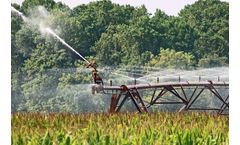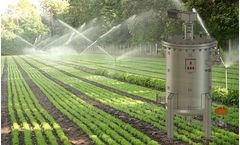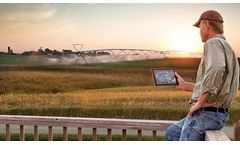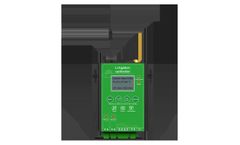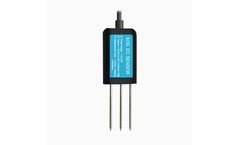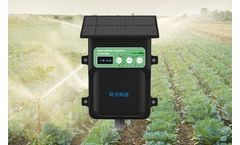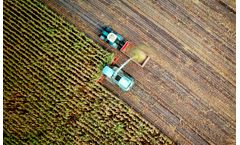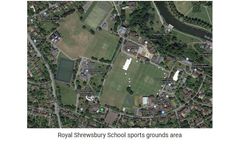Refine by
Optimally Irrigate Articles & Analysis
76 articles found
In today’s rapidly changing world of agriculture, effective water management is the secret to having healthy crops, farming sustainably, and achieving maximum yields. With the world’s population increasing and food requirements increasing, farmers are taking up new concepts to farm with greater efficiency and preserve precious water. The pivot irrigation system, or the center pivot ...
The project has as its overall aim to increase climate resilient agricultural productivity and food security, with a specific objective to increase the water productivity and profitability of smallholder farmers in Mozambique, prioritizing small (family sector) farmers to increase food and nutritional security. This project will demonstrate what the best combinations are of adoption strategies ...
Self-cleaning filters play an important role in irrigation systems. The automatic filters can improve irrigation efficiency, help conserve water, reduce labor costs, and extend the life of irrigation equipment. ...
New smart control panels, however, are revolutionizing pivot irrigation. These devices reduce water consumption and lead to savings in time and labour. Zimmatic control panels have everything for the grower who is ready to take complete control of their irrigation and get the most out of their fields. These control panels include built-in features ...
Understanding Smart Irrigation: Smart irrigation refers to the application of advanced technologies, sensors, and data analytics to optimize irrigation practices. ...
ByJXCT
Precision Agriculture: Weather stations support precision agriculture by providing farmers with site-specific information on weather conditions and soil moisture levels. This enables targeted irrigation, fertilization, and pest management practices, optimizing resource use and reducing environmental impact. ...
ByJXCT
By mapping variations in soil properties, farmers can tailor their management practices to optimize crop growth and resource use. Water Conservation: Monitoring soil moisture levels with sensors allows farmers to apply water precisely where and when it is needed, reducing water waste and energy consumption associated with irrigation. ...
ByJXCT
By providing precise and continuous data, soil sensors enable farmers to make informed decisions about irrigation, fertilization, and other soil management practices. Benefits of Soil Sensor Technology: Improved Resource Efficiency: Soil sensors allow farmers to optimize resource use by providing real-time information on soil moisture levels. ...
ByJXCT
Monitoring these soil health indicators is crucial for optimizing crop production, preventing soil degradation, and promoting sustainable farming practices. ...
ByJXCT
By mapping EC variations across a field, farmers can identify pockets of low or high salinity, tailoring fertilizer application to specific needs. This reduces waste, optimizes nutrient uptake, and promotes stronger, healthier crops. Salinity Management: In drought-prone regions or areas with saline irrigation water, managing salt buildup is crucial. ...
A tailored roadmap for precision agriculture that guides farmers towards optimal irrigation, targeted fertilization, and strategic pest control. ...
This precise information allows farmers to control the amount and timing of irrigation more precisely, avoiding wasteful and ineffective irrigation. In this way, soil sensors not only improve irrigation efficiency, but also help reduce water consumption on farmland, protect water resources, and achieve sustainable agriculture.Second, ...
ByJXCT
Background: With the continuous development and application of science and technology, more and more fields begin to adopt automation technology to improve production efficiency and reduce costs. In the agricultural sector, automatic irrigation control systems have become a must-have device that can help farmers easily manage their fields, achieve efficient irrigation, and improve crop yield and ...
ByJXCT
In the face of growing water scarcity and the pressing need for sustainable agricultural practices, optimizing irrigation efficiency has become a paramount concern for farmers worldwide. ...
This article explores the multifaceted role of advanced irrigation controllers in modern agriculture and their impact on optimizing crop production. ...
Soil moisture levels fluctuate significantly over time and space, influenced by factors such as rainfall, evapotranspiration, irrigation, and soil type.Measuring soil moisture is crucial for various reasons:Optimizing irrigation schedules: Accurate soil moisture data allows farmers and gardeners to irrigate their crops and plants effectively, ...
I. Introduction Irrigation is a critical component of agriculture, ensuring that crops receive the necessary amount of water for optimal growth and yield. ...
The V3 Irrigation Controller offers a cutting-edge solution that simplifies and optimizes irrigation processes. ...
This precision is critical for various aspects of farming, including planting, harvesting, and irrigation. Farmers can ensure that seeds are planted at the exact depth and spacing required for optimal growth, leading to higher yields and reduced resource waste. ...
Managing sports turf in a school environment, has a whole extra set of influencing factors, that make maintenance decisions even more difficult. The ability to use intelligent solutions for maintaining optimal turf conditions regardless of limited budgets and increasing demands for sustainable maintenance has proved influential to a forward thinking turf professional, who wants to stay ahead ...

